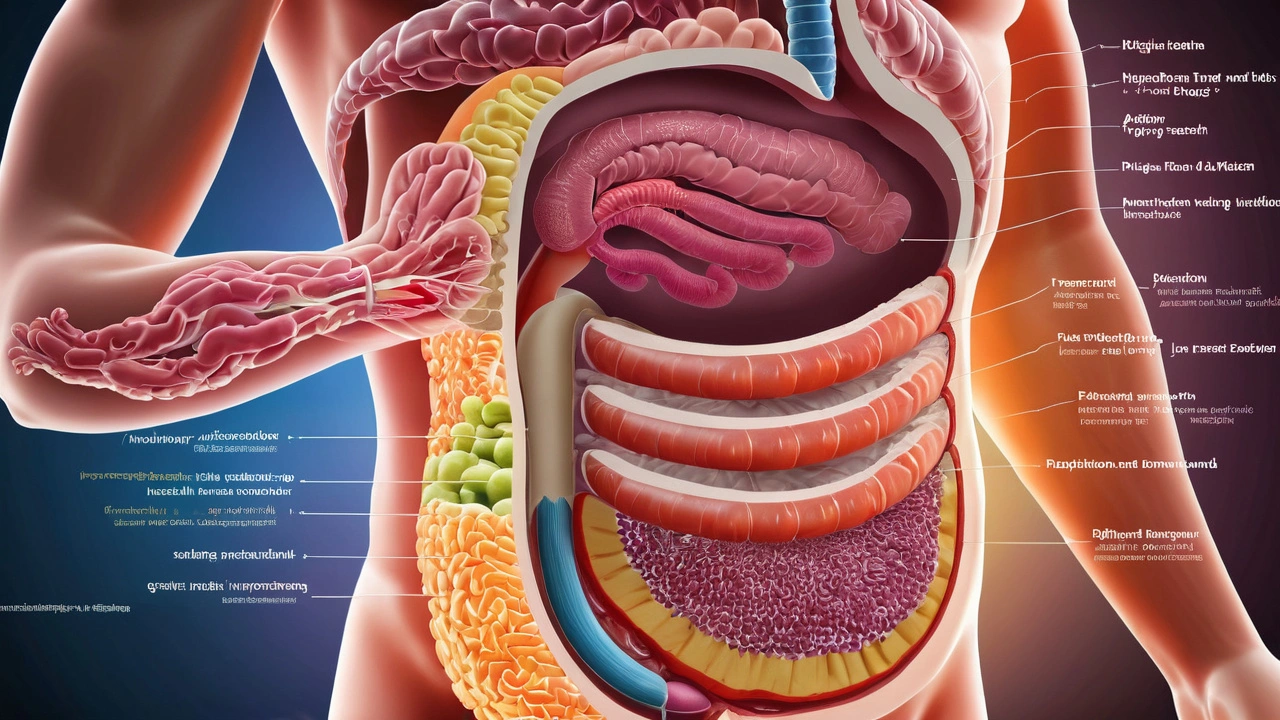Gut bacteria live in your gut and affect digestion, immunity, mood and weight. You carry trillions of microbes that break down food, make vitamins, train your immune system and send signals to your brain. Small changes in diet or stress can shift which bacteria thrive and how you feel.
Think of your microbiome like a garden. If you plant the same thing every day you get poor soil. Feed it variety and the garden becomes resilient. Swap one processed snack for a fiber-rich option. Add a serving of beans, oats or a piece of fruit. These are prebiotics — food that feeds good bacteria.
Fermented foods add living microbes. A daily spoonful of yogurt, kefir, sauerkraut or kimchi can introduce friendly strains. Start small to avoid gas. If you try a probiotic supplement, pick a product with named strains and clinical evidence for your symptom. Probiotics help some people with diarrhea, IBS or after antibiotics, but results vary.
Stress, sleep and movement affect gut bacteria too. Chronic stress shifts the microbiome toward strains linked to inflammation. Simple stress habits — five minutes of deep breathing, short walks, or a quick body scan — help both your mind and your belly. Aim for 7 hours of sleep and build exercise habits like 10 minutes of walking after meals to support digestion.
Antibiotics can wipe out large parts of your microbiome. Use them only when necessary and follow your provider’s instructions. After a course of antibiotics, focus on diverse, fiber-rich meals and consider a probiotic shown to reduce antibiotic-associated diarrhea.
Watch for warning signs that need medical attention: sudden, severe belly pain, high fever with diarrhea, blood in stool, or rapid, unexplained weight loss. Persistent bloating, changes in bowel habits for more than a few weeks, or symptoms that began after a new medicine deserve a checkup. Your doctor can run tests, review medications and recommend targeted treatments.
Small steps add up. Try a simple four-week plan: week one add one more serving of vegetables or fruit each day; week two add a whole grain like oats; week three include a fermented food regularly; week four build a short post-meal walk habit. Track how you feel and adjust.
If you’re on immune-suppressing drugs, pregnant, or have a serious health condition, talk to your clinician before starting probiotics. Also, if you take prescription meds, check interactions and coverage with your healthcare plan before buying new supplements.
A healthier microbiome rarely requires dramatic change. Focus on small, specific shifts — more plants, more variety, less unnecessary antibiotics, better sleep and manageable stress. Over time your gut bacteria will reward you with steadier digestion, clearer energy and often a better mood.
Want to track progress? Keep a simple food and symptom diary for two weeks: note meals, bowel movements, sleep and stress. This makes patterns obvious and gives useful info for your clinician and questions.

A healthy gut is the foundation of overall health, affecting digestion, mood, immunity, and energy. Learn how food, stress, and daily habits shape your gut microbiome-and simple steps to rebuild it.
Read More
The digestive system plays a crucial role in our overall health that often goes unnoticed. This article delves into the importance of maintaining good gastro health, highlighting its impact on our immune system, mental well-being, and energy levels. Readers will find practical tips for fostering a healthy gut, including dietary recommendations and lifestyle changes. By understanding the significance of gastro health, we can make informed choices to improve our overall well-being.
Read More